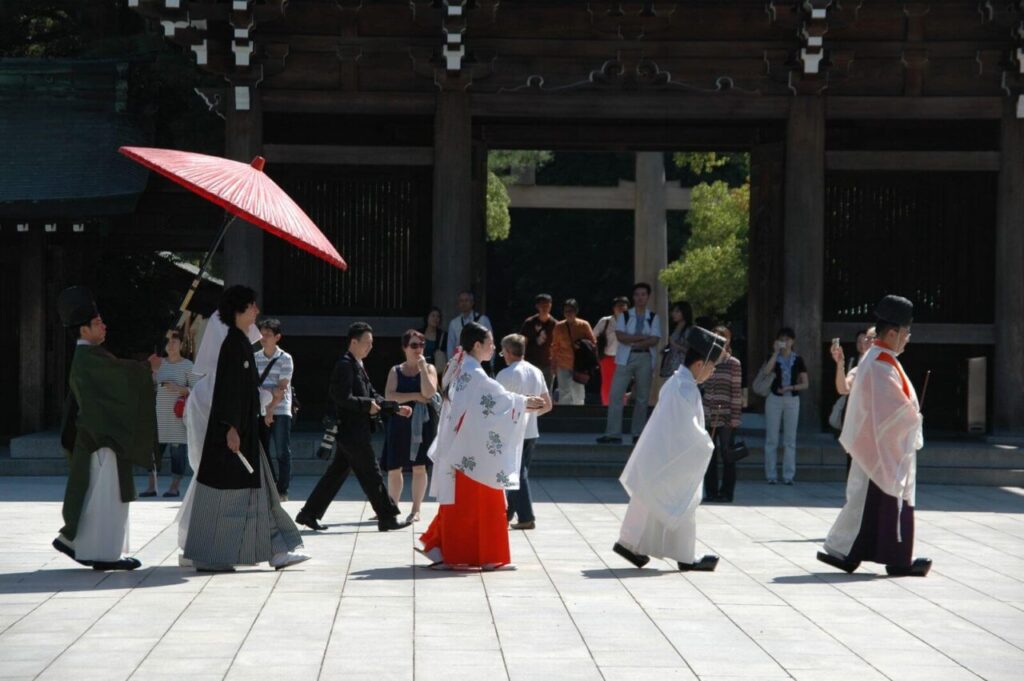What Constitutes a Legal Marriage?
In Japan, much like in the U.S., a legal marriage involves civil registration at a municipal government office. To marry legally, men must be 18 years or older, and women must be 16 years or older. A religious ceremony, while culturally significant, does not have legal standing. Therefore, couples must complete the civil registration process to have their marriage legally recognized.
Average Marrying Age
Over the last sixty years, the average marrying age in Japan has risen. Today, men typically marry at around 30 years old, while women marry at about 28. This shift largely results from more young people focusing on their careers. Many individuals choose not to marry for various reasons. Women now secure higher-paying jobs that enable financial independence, eliminating the need to rely on a husband. Additionally, a single income is often insufficient for raising a family. Technological advancements have allowed men to manage household chores and cooking independently. Furthermore, family pressure to marry has significantly decreased, leading many to feel less compelled to start a family.
Living Situation After Marriage
After marriage, most couples in Japan live independently in a house or an apartment. In some cases, they might live with the groom’s or bride’s parents, though this is uncommon. Some couples opt for a “ni setai jyutaku” style house, which is a split-level home. This type of house has two separate entrances, one leading to the side where one family lives and the other to the side where the second family resides. This layout is similar to a row house, providing privacy while allowing close proximity to family.
Expectations After Marriage
What do Japanese men and women expect from each other after marriage? About 25 years ago, around 37% of married women were full-time housewives, while another 37% worked, and 10% both worked and managed the household. These figures have changed dramatically. Now, the percentage of women working and managing the home has nearly tripled, and the number of full-time housewives has significantly decreased. Modern women expect their husbands to support them not only financially but also in household chores, sharing the responsibilities equally.
Marrying a Japanese National
If you’ve met a special Japanese person and wish to marry, but you’re a citizen of another country, there are specific steps to follow. Before registering at the municipal office in Japan, the Japanese citizen must comply with local marriage laws, which include:
- The groom must be 18 years or older, and the bride 16 or older.
- Women can only remarry six months after the dissolution of their previous marriage.
- Blood relatives or those related by adoption cannot marry.
- Minors must obtain parental permission to marry.
The foreign national must obtain a notarized “Affidavit of Competency to Marry,” proving they are legally free to marry in their home country. They must also provide proof of nationality, such as a birth certificate, passport, or alien registration card. If a minor, a notarized consent form from their parents is necessary. All documents need to be translated into Japanese. Once gathered, these documents are submitted to the local municipal office for review. If everything is in order, a marriage certificate will be issued.
Obtaining a Spouse Visa
After marriage, if the foreign spouse wishes to live in Japan, they must obtain a spouse visa. This process involves filling out an application form, securing a letter of guarantee from a resident in Japan, and providing a copy of their alien registration card or passport. Additionally, the Japanese spouse’s resident certificate and family registration, along with the guarantor’s certificate of employment and income-tax payment certificate, are required. The visa application process can take up to three months.
To learn more about marriage in Japan, visit: The Ministry of Justice










Comments